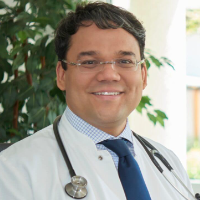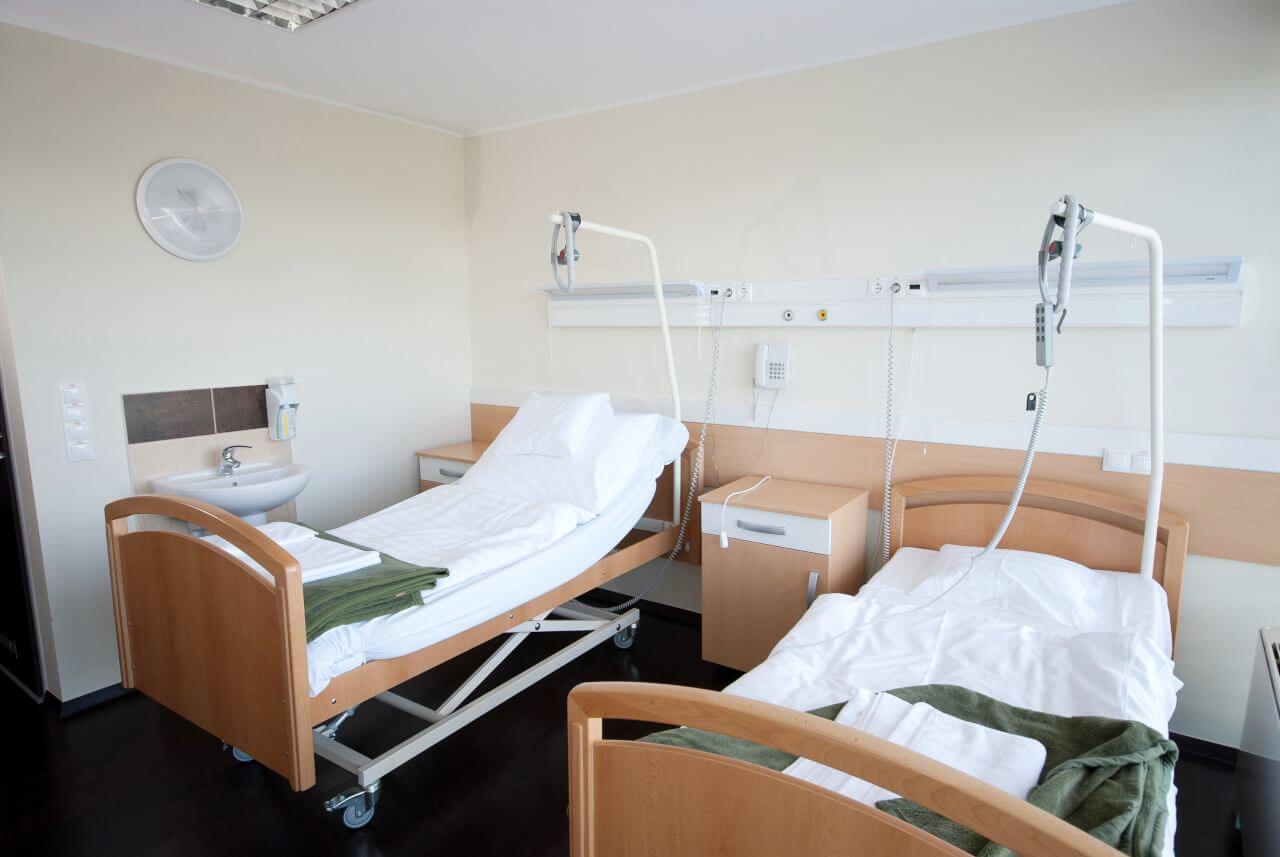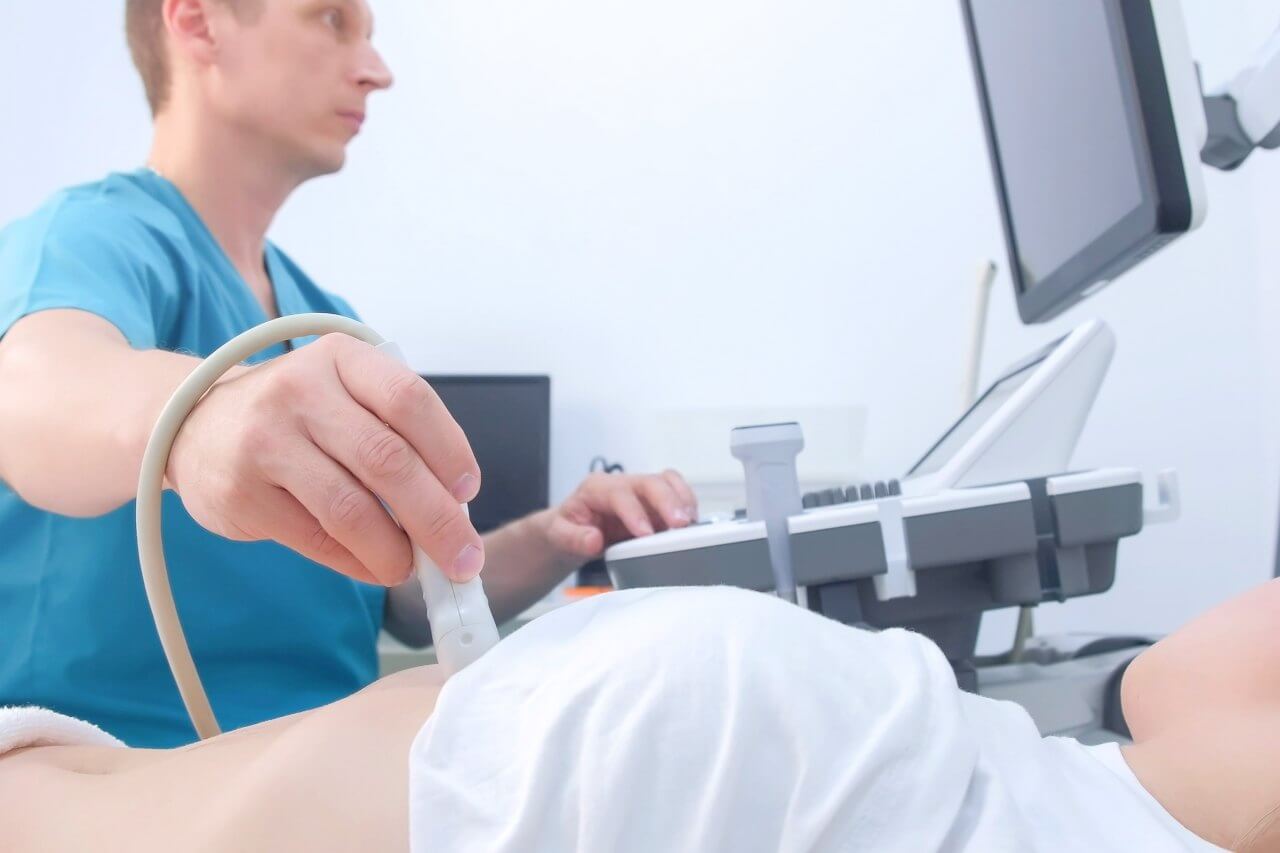
About the Department of Oncology at Hallwang Private Oncology Clinic Dornstetten
The Department of Oncology at the Hallwang Private Oncology Clinic Dornstetten specializes in the diagnosis and treatment of oncological diseases, including rare and particularly complex cancers. The department's highly qualified team of doctors treats patients with breast, ovarian, uterine, prostate, stomach, colon, pancreatic, liver, lung, kidney, bladder, and skin cancers, as well as head and neck tumors, gastrointestinal neuroendocrine tumors, and bone and soft tissue sarcomas. The department's specialists also provide medical care to patients with malignancies of unknown primary location. The department's key area of clinical practice is the provision of systemic cancer treatments such as chemotherapy, targeted therapy, hormone therapy, and immunotherapy. Of particular interest are immunotherapies using antibody-drug conjugates, immune checkpoint inhibitors, monoclonal, polyclonal, and trifunctional antibodies, oncolytic virotherapy, and cancer vaccines. Systemic cancer therapy is combined with complementary medicine methods, which greatly increases the chances of a successful outcome. The department's oncologists have impressive experience in their field of expertise, which they acquired at renowned medical centers in Germany and the USA. Each patient receives personalized medical care, and psychological support can be provided if necessary. The Head Physician of the department is Dr. med. Jens Nolting.
The department's team of oncologists always strives to provide highly effective and, if possible, as sparing cancer treatment as possible. One of these therapeutic procedures is immunotherapy, which has become a real breakthrough in the field of oncology in the 21st century. Today, immunotherapy is successfully used for almost all types of cancer and provides good results, including complete recovery. The essence of the treatment is to influence different parts of the immune response and activate the patient's own anti-cancer immunity. Immunotherapy drugs are administered intravenously. The department's specialists offer patients treatment with all currently available immunological drugs, including antibody-drug conjugates, immune checkpoint inhibitors, and monoclonal, polyclonal, and trifunctional antibodies. When clinically indicated, the department's oncologists also perform cancer vaccination and oncolytic virotherapy. These are innovative types of immunotherapy that are not available in every hospital in Europe.
The range of therapeutic options offered by the medical facility also includes classical systemic cancer treatments with chemotherapy, targeted therapy, and hormone therapy. During chemotherapy, the patient receives cytostatics (intravenously or in tablet form) that destroy cancer cells in the body. Chemotherapy is given in cycles, with treatment periods alternating with rest periods of several weeks. The duration and intensity of the chemotherapy course are determined individually by the attending physician. Targeted therapy involves the use of drugs that attack specific targets in tumor cells. Targeted therapy is characterized by a selective effect on cancer cells. Therefore, unlike chemotherapy, it causes virtually no side effects. Targeted drugs are usually administered intravenously; in rare cases, they can also be taken orally. The department also offers hormone therapy. It is indicated for patients with hormone-dependent tumors, in particular breast cancer, ovarian cancer, and prostate cancer. The goal of hormone therapy is to reduce the levels of tumor-promoting hormones as much as possible, thereby stopping tumor growth.
In most cases, cancer treatment has a certain impact on the patient's general health condition, causing lethargy, fatigue, loss of appetite, depression, etc. For this reason, the department's doctors incorporate complementary medicine methods into the comprehensive cancer treatment regimens to help restore and strengthen the body. Depending on the specific clinical situation, oncologists may also prescribe a special diet or orthomolecular nutrition to supply the patient's body with nutrients to compensate for their deficiencies. The basic course of cancer treatment may often be supplemented with ozone therapy and/or hyperbaric oxygen therapy. The department's doctors perform whole-body hyperthermia to enhance the effect of chemotherapy. Chemotherapy and immunotherapy are usually performed in combination with infusions of vitamin complexes, which minimizes side effects.
The department specializes in the diagnosis and treatment of the following oncological diseases:
- Breast cancer
- Uterine cancer
- Ovarian cancer
- Prostate cancer
- Kidney cancer
- Bladder cancer
- Stomach cancer
- Colon cancer
- Pancreatic cancer
- Liver cancer
- Lung cancer
- Skin cancer
- Head and neck tumors
- Gastrointestinal neuroendocrine tumors
- Bone and soft tissue sarcomas
- Cancer of unknown primary
- Leukemias
- Lymphomas
- Other malignancies
The department's range of therapeutic services includes the following:
- Chemotherapy
- Targeted therapy
- Hormone therapy
- Immunotherapy
- Complementary medicine methods
- Diet therapy
- Orthomolecular therapy
- Ozone therapy
- Photopheresis
- Hyperbaric oxygen therapy
- Whole-body hyperthermia
- Methods of interventional treatment, radionuclide treatment, and radiation therapy, which are provided in collaboration with partner clinics
- Selective internal radiation therapy (SIRT)
- Transarterial chemoembolization (TACE)
- Transarterial chemoperfusion (TACP)
- HIFU therapy
- Microwave ablation
- Cryoablation
- Cryotherapy
- Peptide receptor radionuclide therapy (PRRT)
- CyberKnife radiosurgery
- Other therapeutic options
Photo of the doctor: (c) Hallwang Private Oncology Clinic




